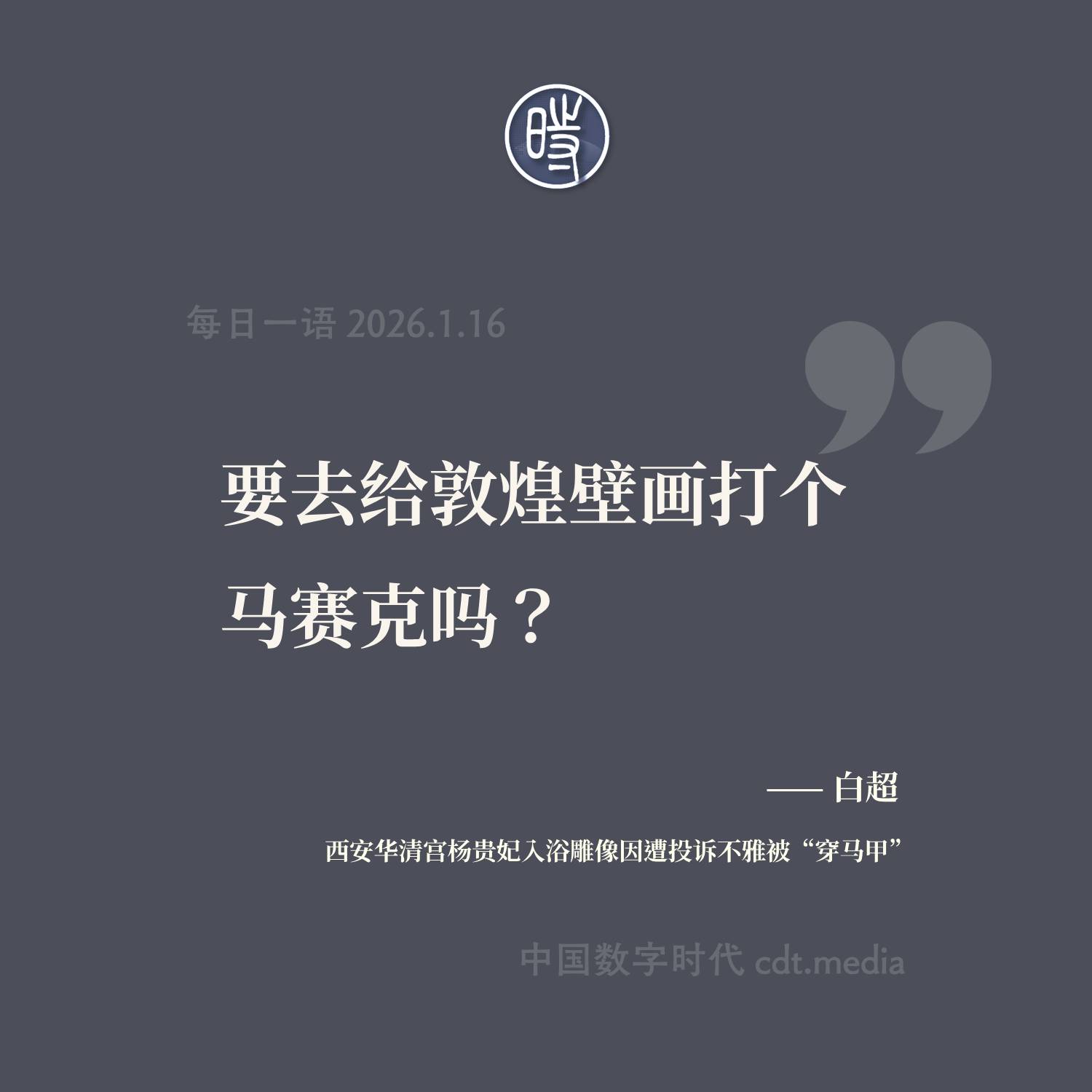
和罗永浩,又开始作妖了。
他先是承认西兰花是在冤枉西贝。
食品工业的朋友们跟我说,冷冻西兰花成本确实更高,所以西兰花的问题在某种程度上是冤枉的(其他的基本都不冤,甚至不能算"黑",因为他家大部分就是预制菜!!!这个事实,靠撒谎、偷换概念,请黑公关都改变不了)
但是,他连道歉都不屑于,他可是带头攻击西兰花的人,传播过反智舆论,就这么轻轻放下自己?严以待人、宽以待已?
食品工业的朋友,会仅仅和他说冷冻西兰花更贵么?不可能,冷冻西兰花比在市场上采购的西兰花更新鲜,这本就是这一行业的常识,不可能不说,罗永浩就选择性的选择一个贵来回避真正的科学问题。
也即西贝选择用冷冻西兰化,是中高档餐饮企业站在给客户更好的营养、口感角度选择的成本更好的手段。
罗永浩一点也不诚实,不敢面对。
不可能是由于西贝今天爆出关店,才有人通知你的吧。
你早就知道至少在西兰花问题上冤枉了西贝,你怎么不早说呢?今天才说呢?你有品吗?敢为自己说错话负责吗?
不敢。
直至今天,还是一句否定自己的话都不说,死不认错。
不仅对西兰花问题不道歉,还在后面加一堆情绪用词,意思是:我只是某种程度 上冤枉了你,但你就是坏,用了预制菜,你就是撒谎。我没错!
贾国龙的应对是错误的,但这种错,可不是撒谎。
按政府出台的预制菜标准和定义,西贝就是没有。你把贾国龙的这种辩护说成成撒谎,偷换概念,这也太没品了吧。
罗永浩这与牛二与泼妇有什么区别?
请记住当时他的言论:
9月13日凌晨3点21分,罗永浩在社交平台上接连发问:“如果只靠冷冻技术,完全不用防腐剂,怎么才能让有机西兰花的保质期达到24个月?还能用它做成适合给孩子吃的菜肴?”
这话就是科盲嘛!
绝大多数冻品都不需要用防腐剂,这种问题导向什么样的舆论呢?
你好歹问一下行业内人士,是个舆论大V,就得让自己少说无知的话。
他无知,但无知得理直气壮。
很多人不知道,网红也不会全知全能,骂错了,收回啊,道歉啊,做个人呀!
比如,他骂电信运营公司的千兆网络下载速度只有九十多兆的问题。
通讯行业里,运营商标称的“千兆”为比特速率(Mbps),而下载速度常显示字节速率(MB/s),换算关系为1MB/s = 8Mbps,因此千兆宽带理论下载速度约125MB/s。
当然有不了解行业的人跟着一起起哄,说,你运营商就应该说明一下标准啊。
他们不知道的是,通讯行业从上游到下游(设备到运营),全部是用比特速率,是软件行业,为了简化理解,搞了一个新的单位。
要修改标准,可不止是运营商,而是整个通讯行业的产品单位都要改,比如千兆交换机,也要改成叫125兆交换机了。
这只是一个通讯行业与软件行业搞出两种计量单位冲突的问题。
罗永浩身为IT圈人士,至少身边不缺这种有基本常识的朋友,怼完了后,有道过歉吗?
九十多兆的下载速度,对于独享千兆网来说,就是正常范围内的事,要知道,网线、路由器、光猫、网卡所有的全部是顶级的,也就能到100-110兆每秒,理论速度永远达不到。
因为传输的过程本身就有速度的损耗。
正常范围内的网速,你怎么就要发疯?就要利用网红身份对运营商?
如果连身边的朋友都不提醒他一下,那他得多没朋友、多没有人缘。如果提醒过他搞错了,他却不道歉,收回无知言论,他得有多没品?
即使是他别的攻击都是对的,光是西兰花问题,就逃不了一个煽动反智舆论的罪名。当然,这些网络大V都很擅长逃避责任,他和司马南一样,喜欢用反问的方式来规避自己煽动的责任。
其他言论基本上和西兰花事件一样,都是构陷和污蔑。
包括现在的回应,也是继续在煽动。以下是他的回应内容:
多数发达国家的预制菜都比我国预制菜的市场份额要高,但这些国家的大部分预制菜都去了消费者市场和快餐业,而不是像在我们这里:去了正式的餐厅冒充现做的饭菜(否则也解释不了我们的餐饮业为什么会有锅气香精这么变态的"科技狠活儿")
国家支持发展预制菜工业,是为了让中国人吃得更方便、更卫生,更健康,不是为了让餐馆老板用料理包骗同胞(之前有媒体报道说他家的海外店就不用预制菜,操!)不是为了让成千上万受过训练的厨师下岗,被"微波炉操作师"和"料理包加热师"替代。
以上,不仅是罗永浩无知,也是利用国人的无知,在继续煽动。
好吧,我就来继续反击吧。
我们就去看一看,罗永浩眼里包括不少人眼里那些被大家奉为“美食圣地”的发达国家,看看他们的餐厅后厨到底长什么样。
我要告诉大家一个可能会让你幻灭,但绝对真实的结论:在欧美和日本,越是成熟的餐饮市场,预制菜的渗透率就越高。
甚至在那些人均消费几百美元的米其林餐厅里,所谓的“预制工艺”,也就是我们通俗说的“料包化”,早已是公开的秘密,甚至是行业运行的基石。
先看那个被无数文青吹捧为“匠人精神”大本营的日本。
在日本餐饮界,有一个公开的数据,预制菜(日本称为“中食”或业务用调理食品)在餐饮行业的渗透率早就超过了百分之六十。
这意味着什么?意味着你在日本街头随便进一家馆子,大概率吃到的一多半都是预处理过的东西。
大家去日本旅游,大概率都吃过像萨莉亚、吉野家、食其家这样的连锁店。尤其是萨莉亚,号称“意大利家庭餐厅”,价格便宜得惊人,味道还相当稳定。
但你知道萨莉亚的后厨长什么样吗?
萨莉亚的后厨,被称为“没有菜刀的厨房”。
这可不是夸张。
在萨莉亚的门店里,你是找不到一把菜刀的。所有的食材,从洗好切好的生菜,到已经调好味的意面酱,再到那些看起来热气腾腾的肉菜,全部都是在中央工厂处理完毕,然后通过冷链配送到店的。
店员要做的事情极其简单,就是剪开包装袋,倒进盘子,或者放进自动化的烤箱和加热器里。甚至连撒在披萨上的罗勒碎,都是工厂按克数分装好的。
日本人对此反感吗?完全没有。
日本人把它称之为“经营的奇迹”。因为只有这样,才能在人力成本极高的日本,让普通工薪阶层只花五百日元就能吃饱吃好。日本消费者非常理性,他们知道,要在这个价位吃到这种品质,工业化是唯一的路径。
哪怕是那些稍微高档一点的日式定食店,甚至是某些所谓的“老铺”。
你以为那个每天早上热气腾腾的味噌汤是老板娘四点钟起来熬的吗?
绝大多数情况下,那也是大型食品公司提供的浓缩味噌汤料,店里只是加了开水和一些冷冻的豆腐丁、海带芽。
日本的味之素、日清等公司,拥有全球最顶尖的汤底提取技术。他们能把鲣鱼和昆布的风味提取出来,做成还原度极高的料包。
好,你可能会说,那是快餐。
那我去吃怀石料理,去吃昂贵的法餐,总该是现做的吧?
这就触及到了现代高端餐饮的一个核心秘密。
在欧美的高端餐饮界,有一个词叫“Sous-vide”,翻译过来叫“真空低温慢煮”。这个词听起来非常高大上,非常有科技感,是分子料理的代表。
但它的操作流程是什么呢?
厨师在后厨(或者在几公里外的备餐厨房),把顶级的牛排、鸭胸或者鱼肉,和香草、黄油、调料一起放进一个塑料袋里,抽成真空。
然后把这个塑料袋扔进一个恒温的水浴箱里,用六十度左右的低温,煮上几个小时甚至十几个小时。
煮好之后呢?并不是马上给客人吃。而是立刻扔进冰水里急冻降温,然后放进冰箱冷藏保存。
等到晚上客人点单的时候,厨师把这个塑料袋拿出来,在热书里回温,剪开袋子,把肉拿出来,在高温的平底锅或者喷枪下,把表面煎至金黄,摆盘上桌。
要是中国这些反对预制菜的人看到这个流程,马上就得炸毛。提前制作、真空包装、冷藏保存、复热出餐。
这在本质上,和西贝被骂的“预制菜”,和罗永浩嘴里的“料理包”,在工业逻辑上有任何区别吗?
没有区别。
唯一的区别就是,一个叫“真空低温慢煮”,卖你两百美元;一个叫“预制菜”,卖你几十人民币。
为什么米其林大厨都要这么做?是因为他们懒吗?
恰恰相反,是因为追求极致的品质。
传统的煎牛排,完全靠厨师的手感。火大一分,外面焦了里面还没熟;火小一分,汁水就流失了。
但是用这种“预制”的方法,可以通过精确的温控,让肉从里到外都达到完美的粉红色,汁水被牢牢锁在细胞里。
在法国和美国的高端餐饮界,这种“预处理”也就是Pre-prep,是绝对的主流。
这就涉及到了另一个关键因素:人力成本。
在欧美,一个成熟厨师的时薪是惊人的。如果让一个拿着几十美元时薪的大厨,每天花三个小时去削土豆皮、去熬基础高汤、去切洋葱,那这家餐厅的老板第二天就得破产。
所以,欧美诞生了像Sysco(西斯科)这样的巨无霸供应链企业。
在那个大家印象中“遍地新鲜食材”的美国,Sysco控制了绝大多数餐厅的命脉。
不管是路边的夫妻店,还是五星级酒店的餐厅,每天早上都会看到Sysco的冷链卡车停在后门。
卸下来的是什么?是已经切好的胡萝卜丝,是已经预炸过的冷冻薯条,是已经调好味的五加仑桶装酱汁,甚至是已经做好的冷冻熔岩蛋糕。
有统计数据显示,美国餐饮食材的预处理率高达百分之七十以上。
很多你以为是餐厅独家秘制的酱料,其实都是工厂生产的。
厨师要做的,可能只是往里面加一点点新鲜的欧芹碎,或者滴两滴柠檬汁,来“唤醒”味道,顺便搞一点“仪式感”。
这就是现代餐饮的真相:除了最顶部的那个摆盘和最后的加热环节,底层的脏活累活,早就被工业化承包了。
再来说说大家最迷信的“生鲜”。
大家去日本吃寿司,去欧洲吃海鲜,觉得那肯定是从海里刚捞上来的。
我又要打破大家的幻想了。在欧美和日本,为了防止寄生虫(比如异尖线虫),法律往往强制要求生食的鱼类必须经过“超低温急冻”处理。
也就是说,你在东京高级寿司店里吃到的金枪鱼,绝大概率是在捕捞船上就已经被零下六十度急冻了,然后是一路冷链运过来的。所谓的“冰鲜”,在很多时候,反而是次一等的选择,因为它的细菌繁殖风险更高。
这种“冻品”,是安全和品质的代名词,而不是廉价的代名词。
那为什么在国外,很少听到消费者像骂西贝一样,疯狂攻击餐厅用预制菜呢?
难道是因为外国人舌头不灵吗?当然不是。
第一,是因为他们的社会科普在精英层面相对做得好。
在欧美,食品工业的透明度相对较高。受过较好教育的消费者从小接受的教育让他们明白,巴氏杀菌是好的,冷链是好的,添加剂只要合法合规就是安全的。他们不会因为看到一个塑料袋就觉得这是“猪食”。他们更看重的是最终端上来的口味和营养成分表。
虽然反现代食品工业舆论依然强大,但在精英层面,没有多少这类声音。
欧美的普通人一样认定预制菜是垃圾食品,但精英层面反而这类声音小得多,与中国不一样,罗永浩这类的言论影响了一大群精英人群。
第二,是因为国外的预制菜产业已经完成了“良币驱逐劣币”的过程。
在日本,做预制菜的企业,是味之素、日冷这样的世界五百强。
他们有庞大的研发团队,他们的产品真的能做到比普通家庭主妇做得好吃。当工业品的品质超过了手作的平均水平时,消费者自然就接受了。
而我们国内的问题在于,预制菜这个赛道还处在草莽阶段。
确实有很多小作坊,用着最烂的边角料,做着几块钱一包的劣质料理包,让大众有一种预制菜就是低档产品的认知。。
可是,罗永浩们的攻击,却是不分青红皂白,一竿子打翻一船人。
他们把“工业化”等同于“低端”,把“标准化”等同于“没有灵魂”。不少人支持罗永浩,他们说,预制菜卖这么贵,就是欺诈。
那我要问的是,凭什么预制菜就应该便宜?
不少人想象中的新鲜健康的餐饮成本是什么?是厨师早上骑着三轮车去菜市场,跟大爷大妈讨价还价,买一堆带着泥的萝卜白菜回来。这个成本确实是肉眼可见的。
但是,当你把这个规模放大到一千家门店,还要保证每一家店的味道都一模一样的时候,这就不是买菜那么简单了,这就变成了一场精密管理的战争。
首先是选材的成本。
你自己做饭,买个土豆,有点歪瓜裂枣,削掉就是了。但是工业化生产不行。为了适应自动化流水线的清洗、去皮和切割设备,原材料必须高度标准化。土豆的大小、形状、淀粉含量,甚至含水量,都有严格的指标。
这意味着什么?这意味着极高的筛选率。
在农业源头,可能只有百分之三十甚至更少的顶级农产品,能够进入西贝这种企业的采购名单。
这种“掐尖儿”的采购方式,直接就拉高了原材料的底价。你是在为“标准化”这个极其昂贵的属性买单。
接下来是处理环节。
很多人觉得,机器切菜肯定比人工便宜啊。
如果你只是用那种几十块钱的切片机,那确实便宜。但现代食品工业用的是什么?是智能化的光学分选机,是能识别出哪怕一根头发丝异物的X光机。
更重要的是“保鲜”这个环节,这是真正的吞金兽。
比如保鲜西兰花用的液氮急冻技术。大家知道那意味着什么吗?那意味着要建立庞大的液氮供应系统,要维持零下几十度的超低温隧道。这不仅是设备折旧的钱,更是巨额的能源账单。
传统的蔬菜运输,是常温或者加冰块,损耗率极高,到了后厨还得扔掉一大半烂叶子。现代供应链是把这个损耗前置了,在工厂里处理干净,然后用全程冷链运送到全国各地。
大家注意,全程冷链。这四个字说出来轻巧,做起来就是钱山银海。
从工厂出货,到干线物流,到城市仓储,再到最后一公里的配送,必须要保证温度恒定。只要有一个环节温度波动,产品质量就会雪崩。
为了维持这个冷链网络,企业需要投入巨大的IT系统来监控,需要购买昂贵的冷藏车辆。这比一个厨师骑三轮车买菜的成本,不知道高到哪里去了。
所以,当你吃到那一口口感依然脆嫩的冷冻西兰花时,你吃的不仅仅是蔬菜,你吃的是液氮技术,是冷链物流,是无数个传感器和数据监控系统。这些科技含量,难道不应该体现在价格里吗?
好,我们再来说说第二个维度的成本,那就是“空间”和“效率”。
现在的餐饮店都开在哪?都开在大型购物中心里。商场的租金是什么水平?那就是寸土寸金。
在传统的正餐馆里,后厨的面积往往要占到总面积的三分之一甚至更多。你需要洗菜区、切配区、烹饪区、仓储区。每一个区域占用的面积,都是实打实的房租成本。
预制菜的逻辑是什么?它是用空间的置换来换取效率。
通过中央厨房的预处理,商场门店的后厨可以大幅缩小。切配区没了,粗加工区没了。省下来的面积,可以摆更多的桌子,接待更多的客人。
有人说了,你看,省面积了,房租低了,那你菜价就该便宜啊。
这就又天真了。这省下来的房租,并没有变成利润装进老板口袋,而是转移支付给了那个更昂贵的中央厨房。建设一个高标准的中央厨房,动辄就是几个亿的投入。那里的洁净度要求是手术室级别的,地板、墙面、空气过滤系统,那都是钱。
而且,为了在商场那种极其有限的厨房条件下,还要实现快速出餐,企业必须在研发上投入巨资。
说到这,肯定还有人不服。说你吹得天花乱坠,预制菜就是为了省人工啊。把大厨裁了,换成操作工,这人工成本不就下来了吗?
这里面有一个巨大的误解。那就是大家严重低估了“顶级预制工艺”的复杂性,也严重高估了普通餐厅里所谓“现炒”的含金量。
西贝还没有做到米其林餐厅那种加热模式,绝大部分菜品的加熟,是在餐厅完成的,美德拉反应是在吃之前才形成的。
当然,米其林餐厅把这一套技术叫作“分子料理”,叫它“现代烹饪艺术”,你就觉得高端,觉得值几千块。
而西贝还只是前面部分进行预处理、工业化,量产了,你就认为是只值路边摊的价。
这就是双标。
事实上,为了达到这种工业级的稳定,西贝付出的成本可能比一个普通饭馆请两个厨师要高得多。
普通的现炒,依赖的是厨师个人的状态。今天心情好,炒得好吃;明天和老婆吵架了,盐就放多了。而顶级的工业化预制,追求的是六西格玛级别的稳定性。为了这个稳定性,企业必须引入昂贵的质检体系。
每一批次的菜品出来,都要经过理化指标的检测。盐度、糖度、酸碱度,甚至色泽,都有数据卡着。不合格的直接销毁。
这种为了“品控”而产生的损耗成本,是普通小馆子根本无法想象的。
预制菜之所以能存在,之所以被所有的餐饮巨头——不管是麦当劳、肯德基、米其林餐厅,欧美各种高档餐厅,还是西贝——作为核心战略,不是因为它“便宜”,而是因为它“稳定”和“安全”。
在一个高度商业化的社会里,稳定和安全,本身就是最昂贵的商品。
你想想看,你在北京吃到的西贝,和在深圳吃到的一模一样。这背后需要多么庞大的物流和管理体系来支撑?
如果真的像网上的键盘侠说的那样,只要买个冷冻包热一下就行,那为什么那些用廉价料理包的小店,卖十几块钱都还要倒闭?
而西贝为什么能长期把客单价维持在那个水平?
因为消费者不是傻子。
消费者的味蕾能分辨出,什么是五块钱的低品质肉,什么是经过液氮急冻、进价极高的草原羊肉。虽然它们都是“预制”的,但一个是垃圾,一个是现代工业的结晶。
这就好比,优衣库的衣服也是流水线生产的,爱马仕的包其实也有很多工序是标准化的。你不能因为它们都是工业品,就要求爱马仕卖优衣库的价。
西贝的问题,不在于它用了预制菜,也不在于它的成本低。而在于它没有把这个价值传递给消费者。
它没有讲清楚,我这个预制菜,不是为了偷工减料,而是为了让你在任何时间、任何地点,都能吃到那一口经过科学计算的、营养保留最完整的、品质最稳定的好菜。
人们总是对“人工”有着过度的迷恋。觉得人才是值钱的,机器是不值钱的。
但现实是,在一个劳动力越来越昂贵,而对食品安全和品质要求越来越高的时代,依“人”才是最不可控、成本最高、风险最大的。
真正的高科技,往往是反直觉的。
它看起来冷冰冰,没有烟火气,但它背后凝聚的资金密度和智力密度,远远超过了一个颠大勺的厨师。
最后,我想说,预制菜在全球范围内的普及,是人类社会分工的必然结果。
三百年前,每个人身上的衣服都是家里女人一针一线缝出来的。那时候,如果有谁穿了一件纺织厂机器织出来的衣服,可能会被嘲笑是没有温度、没有灵魂。
但今天,还有谁会因为穿了优衣库而感到羞耻吗?还有谁会非要追求每一块布料都是手工纺织的吗?
餐饮业正在经历纺织业三百年前经历的变革。
在未来,百分之九十的餐食,注定将由中央厨房和食品工厂来完成。这是效率的胜利,也是品质的胜利。
有一些人说,应该杜绝这种标准化的连锁餐厅,应该回归小馆子靠着厨师手艺来生存的小馆子,不好意思,这种店铺在现代商业体系中,更难以活下去,因为他不能带来质量和安全的稳定性。
绝大部分食品安全问题,包括你吃到的口味不稳定问题,就是小餐厅搞出来的,他没有这么多钱达成稳定与安全,也没有办法给你产品质量的确定性。
消费者最终一定会抛弃这种小馆子。
西贝的尴尬在于,它处在这个变革的夹缝中。它用奢侈品的成本去做工业化的产品,却没能讲好这个价值故事,反而被舆论的脏水泼了一身。
所以,当我们把目光投向全球,你会发现,西贝走的路,其实就是麦当劳走过的路,是吉野家走过的路,是米其林餐厅走过的路,是所有现代餐饮巨头必经的成人礼。
中餐的味道,在全世界餐饮里,是被广泛认同的,但中餐难的就是标准化,西贝本来是中餐标准化的王者,年入七十多亿,快要上市了,有可能成为中高端餐饮的中国麦当劳,甚至走向全球,结果呢?
罗永浩几句话就能毁了它。
我们不需要对“预制菜”感到恐慌。我们需要恐慌的,是那些利用我们的无知,试图把我们拉回农耕时代的“叫魂者”。
因为,阻碍我们吃得更好、更安全、更高效的,从来不是技术,而是傲慢与偏见,是对科学和现代商业的无知。
我不过是再一次在证明,罗永浩是一个无知、偏执、死不认错的网络黑嘴,反智舆论领袖对世界的伤害极大。

 Getty Images
Getty Images









